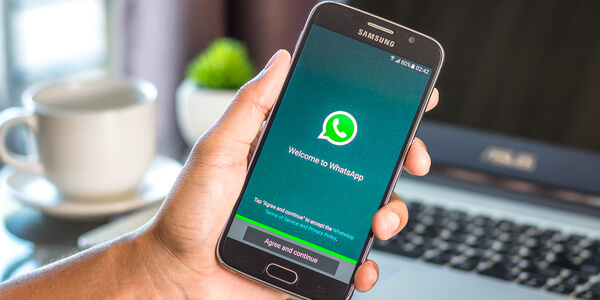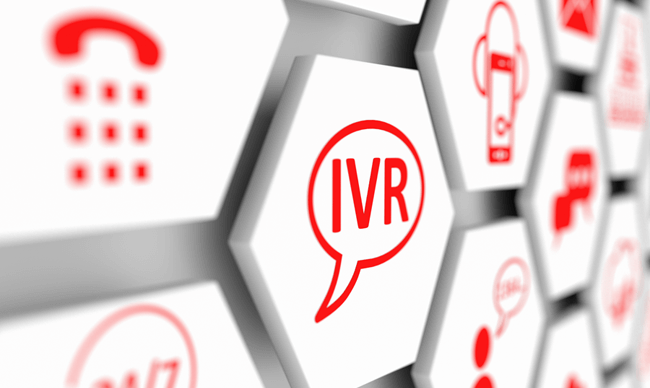While the WhatsApp chat platform offers a private and convenient conversational space, WhatsApp marketing is yet to receive marketers’ full attention. We compiled numerous other reasons why you need a WhatsApp marketing strategy right now.
WhatsApp is the world’s most popular chat platform where users can text, call, video call, send voice memos and locations, create and share photos, videos, and other files via mobile and desktop. It provides end-to-end encryption and free real-time communication with users on the platform. It has evolved from a text-based closed platform to a place where people share views and news with others. The calling features have paved the way for global conversations, and the inclusion of multiple media formats has made WhatsApp a source of entertainment too.
Most marketers think it is challenging to build an audience on WhatsApp. But when you already have your target audience list on your customer data platforms with email addresses, contact numbers, and other information, you just need to find out whether they use WhatsApp or invite them.
Another concern for marketers is that they don’t want to be intrusive by sending users WhatsApp marketing messages directly. But, smart, well-timed, and relevant messaging can help you reach them without getting blocked.
10 Reasons to Create a WhatsApp Marketing Strategy
Let’s look at why you need a WhatsApp marketing strategy as part of your marketing portfolio:
1. WhatsApp is a widely-used messaging platform
According to the WhatsApp blog, the platform connects over two billion users around the world, making it the most popular messaging app today. As of July 2019, MessengerPeople confirmed that WhatsApp has 1600 million active users monthly. With such a large audience base to cater to, you can leverage it the right way to engage 1:1 with your target audiences.
2. People prefer using chat over phone calls
Reaching out to your audience on their preferred channel is vital in any marketing strategy. According to Business2Community, “more people use their smartphone for texting than they do for phone calls and more than 90% of American teenagers are using texting or SMS services.”
Optimally using chat is crucial to communicating with your target audiences. Having a brand account on WhatsApp can ensure you are available at all times to users and they can reach out at their convenience.
3. Your target audience is already on WhatsApp
According to Experian marketing Services:
WhatsApp has a median age of 36
71% of users are in the age bracket of 18-44
According to Sumo.com, WhatsApp is now picking up pace with American users, and “As a marketer armed with this information, you face two scenarios. You market to an international audience, so WhatsApp needs to be on your radar ASAP. You market to the American audience, so you have the opportunity to be an early adopter.”
As the app has a global userbase, it is a go-to platform for diverse audience segments, whether you’re advertising to the U.S. or internationally.
4. WhatsApp offers high user engagement
The HootSuite blog notes incredible engagement rates of messaging apps with 98% of mobile messages being opened and read, and with 90% being responded to within three seconds of receipt.
So your marketing message in all probability will be opened and read on WhatsApp. WhatsApp status, read receipts too have driven user engagement on WhatsApp. Additionally, you will be able to chat with your customers in real-time, and have two-way conversations just like in a physical store. This direct interaction helps your customers feel more connected to you.
5. Permission-based marketing at its best on WhatsApp
Contrary to the popular belief that WhatsApp marketing is not viable as it could be intrusive, the platform offers permission-based marketing. You can’t simply search for or buy contacts. You either request them to share their number or to message you first (or they could mark you as spam). In both cases, you respect the users’ right to reject or receive your marketing message. And you end up with a highly segmented audience base that is interested in your marketing message.
6. You can personalize conversations on WhatsApp
One to one interactions help your business cater to your customers’ unique interests and requirements. This makes your message more relevant and authentic.
For example, if a clothing brand is connected to their regular customers with WhatsApp and knows their buying preferences, they can send messages and deals that are relevant to them, such as New Arrival – Summer Dresses for You!
7. Diverse feature set for different marketing needs
Apart from personalized messaging, WhatsApp offers an array of features for marketers to leverage.
Groups bring together like-minded people to share views and opinions. With a maximum size of 256, you can bring together your most valued customers to share product previews, early deals, etc. Keep the group subject relevant for users to be able to find it.
Broadcast is a feature that can send a message to your broadcast list recipients. It is a great way to create awareness about your brand and products and to share announcements.
Status can be used in a variety of ways. Create short videos for product demos and share customer experiences. You can display images about product information or use your status to humor your customers or share updates in real-time.
Sharing links to your products or services, PDFs or docs as case studies, video product demonstrations, audio files informing customers or how to’s can help inform and engage with audiences. You can also share your location for customers to reach you easily, and share contacts for customer service and updates.
Calling You can connect with your international customers via voice calls. If you are a B2B company, leverage video calls for free demos and direct consultations.
8. WhatsApp Business API for different organizational needs
WhatsApp offers Business applications for SMBs to create business profiles, share websites, open hours, contact information, and automate welcome and away messages for free. You can also integrate third-party chatbots for a fee.
The Business API is for large organizations that wish to send automated updates, notifications, tracking information to customers, and pay for the messages they send. This gives marketers unparalleled access to an engaged user base.
9. Customer service for improved customer experience
Including customer service in your WhatsApp marketing strategy can help create exceptional customer experiences. You can use chat to resolve customer queries, updates about product and delivery tracking, reach out to customers through voice calls, and integrate chatbots for a seamless shopping experience. Being a fast communication medium, you can be accessible to your customers anytime, anywhere.
10. WhatsApp is free
WhatsApp marketing is free unless you are using Business API or integrating third-party chatbots. And that is reason enough to leverage it. The unique selling proposition of this platform is that it is a free medium with a range of features, broad and engaged userbase, the ability to share content using multiple media formats, and being able to connect to customers seamlessly.
Concluding Thoughts
WhatsApp can turn into a tremendous marketing opportunity if you can create brand awareness through other digital channels like social platforms, websites, etc. To help you get started, we leave you with some tips for a successful WhatsApp marketing strategy:
User permission is essential before you start sending them your marketing messages.
Deliver relevant content.
Focusing on personalized and one-to-one communication will help you connect better with your customers.
Leverage sharing options and various content formats to engage customers.
Video messages and status are impactful in creating brand awareness and solving customer problems.
Groups and Broadcast messages can help you share generic information like contact details, service center details, FAQs, product launches, offers, and deals.
Use interactive maps to help customers reach your physical locations.
Use WhatsApp for Business for automated messaging and sharing business-related information.
Be accessible and have a dedicated team to respond to your customers’ messages through chat and calls.
WhatsApp is an excellent medium for customer service, resolving queries, sharing FAQs, tracking order delivery, and leveraging conversational chatbots. Using the platform optimally can help you deliver exceptional customer experiences.



